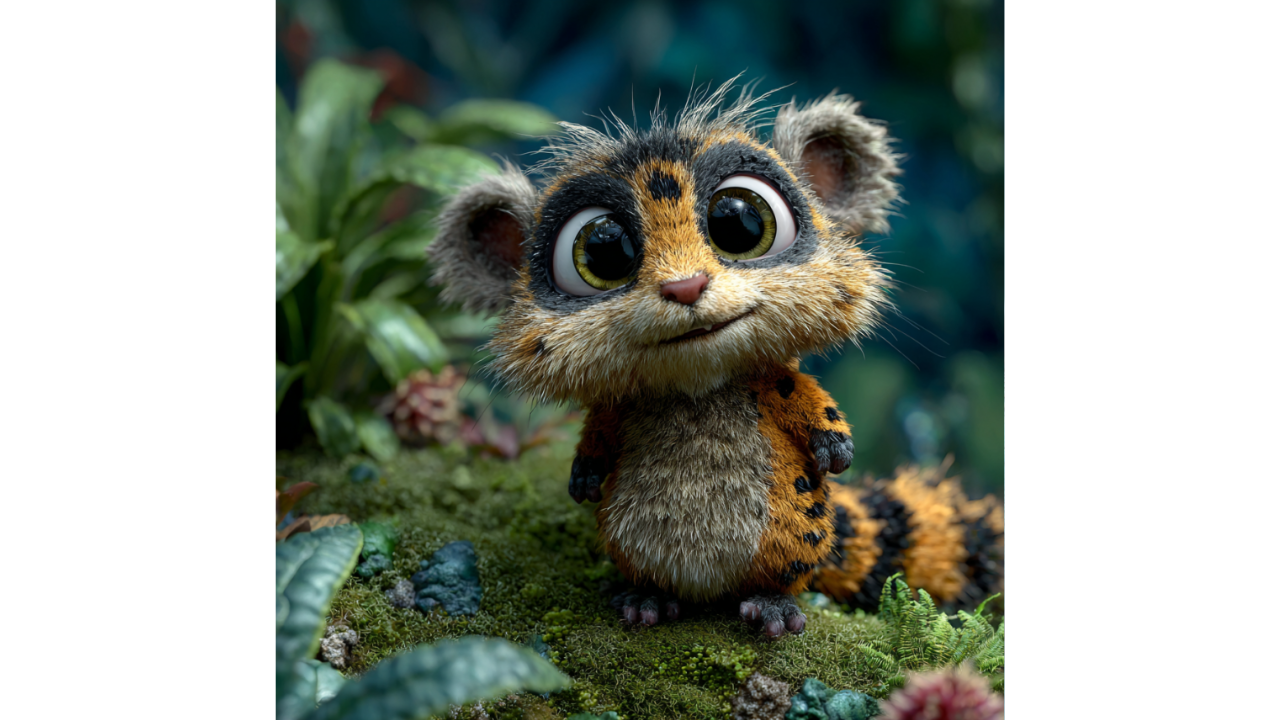AI Actress Tilly Norwood Matters More Than You Think
Meet Tilly Norwood: flawless cheekbones, perfect timing, never needs craft services, and—here's the kicker—she doesn't exist. At least not in the way...
5 min read
 Writing Team
:
Oct 17, 2025 8:00:01 AM
Writing Team
:
Oct 17, 2025 8:00:01 AM
.png)
Amy Poehler spent approximately fifteen seconds of her SNL monologue roasting a non-existent person, and somehow that was the most coherent response Hollywood has managed to the question of AI-generated performers.
"You'll never be able to write a joke, you stupid robot," Poehler said during Saturday Night Live's 50th anniversary episode, addressing Tilly Norwood—an AI "actress" created by Eline Van der Velden's company Particle6 and unveiled at the Zurich Film Festival in October 2025. Tilly doesn't have a body, doesn't have a union card, and definitely doesn't have feelings about being called stupid on national television. But she might have an agent soon.
That's the part that made people nervous.
The joke landed because it articulated something most people feel but struggle to explain: we've crossed from "interesting technical demonstration" into "deeply uncomfortable precedent" without anyone really deciding that's what we were doing. One week Tilly is a festival curiosity. The next week major talent agencies are reportedly interested in representation. Nobody voted on this. It just... happened.
And now we're all supposed to pretend this is normal.
Tilly Norwood is a computer-generated character created using AI rendering technology. She has a face, a "personality," and promotional materials describing her as an ingenue. She does not have SAG-AFTRA membership, a Social Security number, or the ability to experience anything at all.
Van der Velden's Particle6 positioned Tilly as the next evolution in synthetic performers—a fully controllable, infinitely available, never-aging digital actor who can be licensed for roles without the complications of human needs like sleep, payment negotiations, or creative input.
The prospect of major agencies representing AI-generated performers triggered immediate backlash from working actors, writers, and industry professionals still processing the implications of 2023's strikes over AI usage rights.
The concern isn't hypothetical. OpenAI's Sora 2 and similar text-to-video models can now generate photorealistic footage from text prompts. Video generation capabilities that match professional production quality for shots under 10 seconds. The technical barriers to creating synthetic performers are collapsing rapidly.
What remains unclear is whether anyone actually wants this—outside the people building it.
We've had computer-generated characters in entertainment for decades. Lil Miquela has 2.6 million Instagram followers and does brand deals. CGI has replaced actors in de-aging sequences and posthumous appearances. Digital avatars populate video games and virtual concerts.
But Tilly represents a categorical shift: she's being positioned not as a special effect or a creative tool, but as a replacement for human performers in traditional acting roles. The framing matters. When agencies discuss "representing" an AI construct, they're treating it as equivalent to human talent. That equivalence implies substitutability.
The entertainment industry just spent months on strike specifically over this issue. The 2023 WGA and SAG-AFTRA strikes centered heavily on AI usage rights, with unions demanding protections against synthetic replacements and unauthorized digital replicas. Those contracts established some guardrails, but they're already being tested.
The agreed-upon AI protections apply primarily to union productions and require consent for digital likenesses. But those protections don't prevent companies from creating entirely new synthetic performers who never had human counterparts to begin with.
Tilly isn't Amy Poehler's digital twin. She's not based on any real person's likeness. She's a purely artificial construct. Which means most existing protections don't apply. That's either a loophole or the intended design, depending on who you ask.
From a purely financial perspective, synthetic performers solve expensive problems. Real actors require salaries, residuals, backend participation, rider accommodations, and adherence to working hour limitations. They age, get sick, have scheduling conflicts, and occasionally have public scandals that tank marketing campaigns.
AI-generated performers cost upfront development fees and ongoing licensing, but they're infinitely reproducible, permanently available, and immune to every risk factor that makes insuring productions expensive. For studios operating on compressed margins, that's not a feature request—it's a strategic imperative.
Tyler Cowen, the economist Poehler referenced obliquely, wrote that Tilly was his "favorite actress," which generated its own round of incredulous responses. But Cowen's point—however awkwardly expressed—was economic, not aesthetic. In his analysis, he argued synthetic performers represent a productivity breakthrough comparable to automation in manufacturing, reducing costs while expanding output.
That framing is technically accurate and ethically nauseating in equal measure. Yes, replacing human performers with software reduces labor costs. So did replacing factory workers with robotic assembly lines. The question isn't whether it's efficient. It's whether efficiency is the only value that matters.
Poehler's setup was important. She reminded the SNL audience that when the show first aired in 1975, women couldn't get credit cards without male cosigners. Then she pivoted to Tilly.
The connection was deliberate: both represent moments when technological or institutional changes threaten to reshape who gets to participate in public life and on what terms. The credit card example is historical—absurd in retrospect, normalized at the time. The AI actress example is present tense. We're living through the normalization process.
Her punchline—"You'll never be able to write a joke, you stupid robot"—wasn't just a dig at AI capabilities (though current models remain terrible at comedy). It was a declaration of boundaries. This is the thing humans do that machines can't. This is where substitution fails.
Except that boundary keeps moving. Every "this is what AI will never do" claim eventually becomes "this is what AI now does adequately." We're watching the territory of irreplaceable human skills shrink in real time.
Poehler's closing bit—"And I am willing to do full frontal, but nobody's asked me, okay!"—landed because it named the actual fear. It's not that AI actresses will do what human actors do. It's that they'll do things human actors won't, can't, or shouldn't do, and the industry will prefer the option with fewer complications.
The most likely outcome is messy incrementalism. Synthetic performers won't replace human actors entirely—they'll carve out specific use cases where economic or practical factors make them preferable.
Background characters in crowd scenes. Stunt doubles for dangerous sequences. Cameo appearances by characters whose original actors are unavailable or deceased. Commercial spokespersons for brands that want message control without celebrity risk. Each individually defensible. Each collectively reducing the available work for human performers.
SAG-AFTRA's 2024 report on AI in entertainment documented 23% of surveyed members reporting lost work due to AI replacement or synthetic generation. That number will rise. The question is how quickly and whether protections can keep pace.
Agencies will represent synthetic performers because doing so is profitable and because clients want access to controllable, risk-free talent. Studios will license synthetic performers because doing so reduces costs and eliminates complications. Audiences will... probably not care that much, at least initially, because the difference between "very good CGI" and "synthetic AI performer" isn't visually obvious.
The cultural acceptance comes gradually. We went from "CGI looks fake" to "CGI is seamless" to "we can't tell what's real anymore" over about twenty years. The same progression will happen with synthetic performers, just faster.
Poehler's joke worked because it expressed something true that most people feel but haven't articulated: this doesn't feel right, even if we can't precisely explain why.
Creating synthetic performers isn't inherently wrong. Using AI tools to enhance storytelling isn't inherently wrong. But positioning those tools as replacements for human creative labor—framing them as "talent" that deserves representation—crosses from technological advancement into something more troubling.
The discomfort isn't Luddism. It's recognition that some substitutions change the nature of what's being substituted. You can replace a carpenter with a CNC router and still have furniture. You can't replace performers with algorithms and still have performance. You have something different—maybe something valuable, but different.
Hollywood is notoriously bad at making these distinctions until after the damage is done. The industry enthusiastically adopted streaming without fully understanding how it would destroy residual income structures. They embraced algorithmic content recommendations without grasping how it would homogenize storytelling. They're now embracing synthetic performers without seriously considering what happens to the profession of acting when being a person becomes optional.
Amy Poehler told a robot it could never write a joke. She's probably right, at least for now. But whether that matters depends on whether joke-writing remains economically valuable or becomes a niche skill practiced by enthusiasts while algorithms handle the commercial work.
We'll find out. Probably sooner than we'd like.
If you're navigating AI's impact on creative industries—or trying to determine which human skills remain defensibly irreplaceable—talk to Winsome's growth experts. We help organizations distinguish between efficiency and erasure before they accidentally choose the wrong one.

Meet Tilly Norwood: flawless cheekbones, perfect timing, never needs craft services, and—here's the kicker—she doesn't exist. At least not in the way...

While Hollywood executives clutch their Hermès bags and wonder if ChatGPT can write better dialogue than their overpaid script doctors, OpenAI just...

Vogue's latest issue featured something unsettling: a curvy blonde AI model in a light blue romper, hawking Guess products with the kind of perfected...